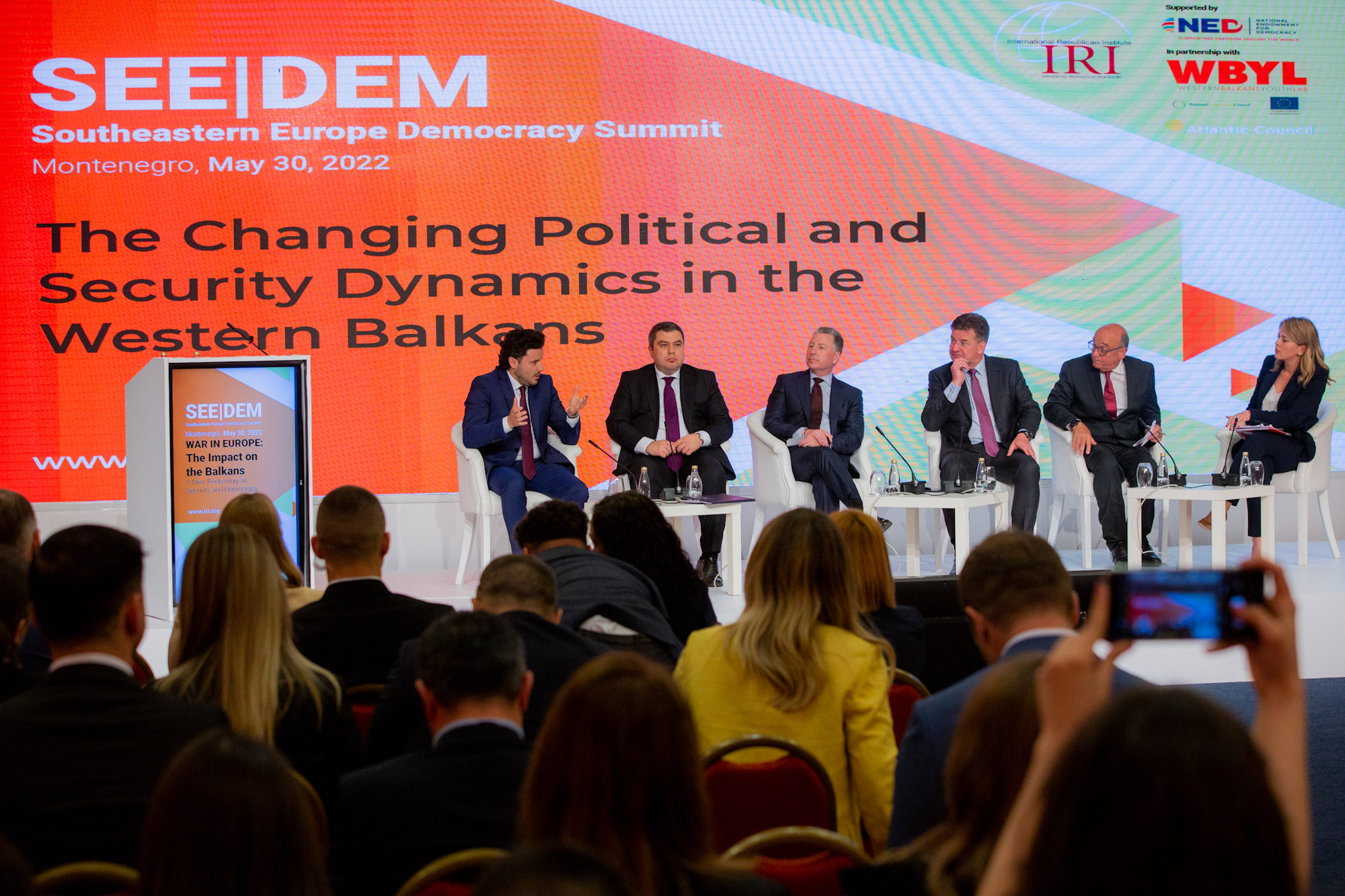IRI’s Southeastern Europe Democracy Summit “War in Europe: The Impact on the Balkans”

As part of its Western Balkans regional program, the International Republican Institute (IRI) held the third annual Southeastern Europe Democracy Summit (SEE|DEM), titled “War in Europe: The Impact on the Balkans” in Budva, Montenegro from May 29 to 31, 2022.
IRI’s Western Balkans regional program focuses on countering malign foreign influence and extremism, in Albania, Bosnia and Herzegovina, Kosovo, Montenegro, North Macedonia, and Serbia. The program brings together decision makers and thought leaders, including Task Force members from five countries (Bosnia and Herzegovina, Kosovo, Montenegro, North Macedonia, and Serbia). Since its inception in 2016, the Task Force, a central component of the Western Balkans program, has developed into a key forum for regional discussions among pro-democratic actors and policy makers who seek to improve the region’s democratic future.
The flagship event offers senior government officials, political party leaders, and prominent analysts from around the region, including Task Force members, a unique forum to openly discuss topics pertaining to the region’s present and future. This year, these key topics included the implications of the Russian invasion of Ukraine on the stability of the region, combatting malign foreign influence, EU accession and NATO relations, and the role of youth in the present and future of the region.

High-level participants in this year’s summit included the President of Kosovo, the Prime Minister of Montenegro, the Deputy Prime Minister of North Macedonia, US Deputy Assistant Secretary of State for European and Eurasian Affairs, the UK Prime Minister’s Special Envoy to the Western Balkans, and the EU Special Representative for the Belgrade-Pristina Dialogue and other Western Balkan regional issues.
During the summit, panelists discussed Russia’s war on Ukraine and its implications for stability in the region, and in Europe as a whole. Russia’s invasion of Ukraine has underlined the importance of strong democratic institutions and their ability to protect and preserve freedom, democracy, and the rule of law. Relatedly, panelists stressed the importance of addressing issues of corruption in the region, which threaten both its economic and political stability.
Regional cooperation and unity also remain integral to its success and stability. Participants noted the power of cooperation and unity to help to combat the Russian strategy of sowing division and discontent and their encouragement of nationalism at the risk of Balkan regional stability. Panelists noted that the ability to work across ethnic and national lines is key to the region’s success in a number of areas, including the EU accession process. While the region’s faith in NATO remains strong, the slow EU accession process, particularly that of North Macedonia, has provided Russia the opportunity to exploit discontent, driving down public support for and trust in the EU.
Panelists from the region noted that EU accession remains a goal but must be a reciprocal process – successful completion of criteria set out by the EU should be met with progress on the EU side. Similarly, it is important for countries to remain patient and positive. It is important that the EU restore the faith of the populations of the Western Balkans in its value, and that all parties take advantage of the current momentum stemming from the conflict in Ukraine. A final common thread throughout the conference was the role of young people and their importance to the present and future of the region. Young leaders from IRI’s Advanced Leadership in Politics Institute attended a two-day forum in the lead up to the conference, and prepared questions directed at each of the panelists. Democracies are only as successful as their citizens, and the Balkans have an especially young population – support to and inclusion of these young people, particularly those involved in politics, remains integral to their success.
Top